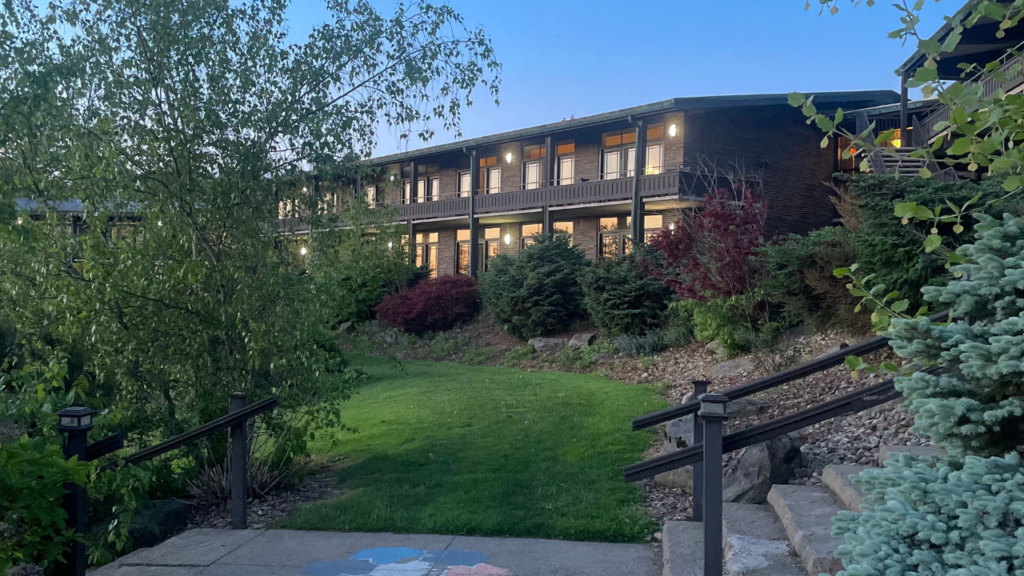If you are exploring addiction treatment centers in Ohio, one of the first questions you will face is whether you should complete medical detox before starting rehab. Detox and rehab are connected but different. Detox focuses on safely managing withdrawal and stabilizing your body. Rehab addresses the reasons you use, builds skills, and creates a plan for long-term recovery. This guide explains when detox comes first, how it works in Ohio, and how to move smoothly into treatment at an accredited program like The Bluffs in Sherrodsville.
What Detox Is and What It Is Not
Detox is a short, medical step designed to keep you safe and more comfortable during withdrawal. Physicians and nurses monitor vital signs, manage symptoms, and use evidence-based medications when appropriate. The goal is to reduce risks and prepare you for therapy. Detox is not a cure for addiction, and most people benefit from continuing into residential or outpatient care once they are stable.
At The Bluffs’ medical detox, care teams assess your history, watch for complications, and plan your next level of care so you do not lose momentum between phases.
When Detox Comes First In Ohio Treatment Plans
Ohio treatment providers follow national standards that place safety first. Specific substances and health factors determine whether you should complete detox before entering an addiction treatment center.
Substances That Usually Require Medical Detox
- Alcohol: Withdrawal can cause dangerous spikes in blood pressure, seizures, and a medical emergency called delirium tremens. Medical oversight helps prevent and treat complications and can include medications that reduce risks and discomfort.
- Benzodiazepines: Stopping sedative medications suddenly can trigger severe, unpredictable withdrawal. A slow, supervised taper and monitoring are important.
- Opioids: Withdrawal is typically not life-threatening but can be intense. Supervised withdrawal with options like buprenorphine or methadone can ease symptoms and set you up for medication-assisted treatment.
Cases Where Detox May Not Be Required
People withdrawing from stimulants or cannabis often do not need inpatient detox. Supportive care, hydration, sleep, and close monitoring may be enough. Your assessment still matters because polysubstance use, medical conditions, or mental health symptoms can change the recommendation.
Red Flags That Signal You Need Detox Now
- Daily heavy alcohol use, a history of seizures, or hallucinations during past withdrawals
- Regular benzodiazepine use or combining sedatives with alcohol or opioids
- Significant medical conditions, pregnancy, or thoughts of self-harm
- Severe withdrawal symptoms such as tremors, vomiting, confusion, or uncontrolled pain
If you notice these signs, seek medical help immediately. In an emergency, call 911. For urgent emotional support, call or text 988, the Suicide and Crisis Lifeline in Ohio.

What To Expect From Medical Detox At The Bluffs
Detox at The Bluffs begins with a thorough evaluation of your health history, current use, medications, and goals. That assessment guides a personalized withdrawal plan, including monitoring and comfort strategies. Care teams can use FDA-approved medications for alcohol and opioid withdrawal when indicated, and they adjust care as symptoms change.
Many people complete detox in several days to about a week, depending on the substance and severity. The Bluffs pairs stabilization with early recovery work so you transition quickly into active treatment. Learn more on the medical detox page and the overview for drug detox and residential rehab or alcohol detox and rehab.
How Detox Fits Into The Continuum Of Care
Detox is the first step, not the finish line. After withdrawal is managed, most people step into residential treatment to build momentum. Residential programs offer 24/7 support, daily therapy, medication management when appropriate, and a structured schedule away from triggers. As symptoms stabilize and skills grow, many patients can step down to less intensive care and continue recovery at home with strong supports.
At The Bluffs, your team will recommend the right next level of care and handle the handoff so you do not have gaps between phases. Start exploring inpatient options here: Residential Rehab at The Bluffs.
Clinical Elements You Can Expect In Quality Ohio Programs
High-quality addiction treatment in Ohio combines several elements:
- Comprehensive Assessment: Medical, psychiatric, and social factors inform your individualized plan.
- Evidence-Based Therapies: Modalities such as cognitive behavioral therapy and trauma-informed care help change patterns that keep addiction in place.
- Medication Options: For opioid use disorder, medications like buprenorphine or methadone can reduce cravings and relapse risk. For alcohol use disorder, medications such as acamprosate or naltrexone can help support abstinence and reduce heavy drinking.
- Family and Aftercare Planning: Recovery plans should include relapse prevention, community supports, and follow-up appointments before discharge.
Read more about The Bluffs’ approach on the About Us page and the program FAQs: Rehab FAQs.
Length Of Care And Stepping Up Or Down
The length of detox varies based on your substance and history. The length of residential care also varies by progress and clinical need. Your team may recommend stepping down from residential to community-based therapy, peer support, and ongoing medication management if indicated. The most important factor is continuity. Try not to take long breaks between phases, because relapse risk is highest right after detox when cravings are strong and routines are not yet established.
Insurance And Costs In Ohio
Many Ohioans use commercial insurance or Medicaid managed care to help pay for detox and rehab. Coverage depends on your plan, the level of care, and clinical necessity. Ohio follows national standards that align services with medical need, and plans apply parity rules to behavioral health benefits. The simplest way to understand your benefits is to let an admissions team verify them and explain any out-of-pocket costs up front.
The Bluffs makes this easy. You can verify your insurance confidentially online in minutes or view insurances we accept. If you have questions or prefer to talk, contact admissions anytime.
How To Compare Ohio Detox And Rehab Programs
Use this quick checklist as you evaluate options:
- Medical Safety: 24/7 monitoring during detox and clear protocols for high-risk withdrawals
- Licensed And Accredited: State licensure and national accreditation such as The Joint Commission or CARF
- ASAM-Aligned Care: Programs that assess placement needs and step you up or down appropriately
- Evidence-Based Therapies: Documented use of therapies with strong research support
- Medication Access: On-site or coordinated access to FDA-approved medications for opioid and alcohol use disorders when clinically indicated
- Family Support And Aftercare: Planning for relapse prevention, peer support, and follow-up before discharge
- Transparent Costs: A simple insurance verification process and clear financial expectations
Why Ohio Residents Choose The Bluffs
The Bluffs is a private addiction treatment center located at 2650 Lodge Rd SW in Sherrodsville, Ohio. Patients choose The Bluffs for physician-supervised detox, residential care, dual-diagnosis support, and a restorative campus setting that helps you focus on recovery. The team verifies benefits quickly and coordinates a seamless transition from detox into treatment so you keep the progress you worked hard to earn.
Local And State Resources For Ohio
These respected resources can help you learn about treatment options, find providers, or get support close to home:
- FindTreatment.gov (SAMHSA) for a national, filterable directory of licensed programs
- Ohio Department of Behavioral Health Provider Finder for in-state services
- Ohio 988 Suicide & Crisis Lifeline for 24/7 confidential support by call or text
- Alcoholics Anonymous Meeting Resources and the AA Meeting Guide app
- Narcotics Anonymous Meeting Search
- SMART Recovery Meetings
- Ohio Medicaid Managed Care for coverage information
If you or a loved one is in immediate danger, call 911.
How To Start
You do not have to figure this out alone. If you are in Ohio and think you may need detox before rehab, call admissions and get a same-day assessment. The Bluffs can explain what to expect, check your benefits, and help you take the first step safely.
Verify Your Insurance or Contact The Bluffs to speak with admissions.








